Prohibited Gun Possessors
Prohibited Gun Possessors
What is the problem?
Keeping guns out of the hands of people who are likely to harm themselves or others—before they act—is the most effective way to prevent gun violence.
Federal law requires background checks on all gun sales from licensed firearm dealers to ensure that gun buyers do not fall into one of the categories of people prohibited by law from having a gun. But the law does not require background checks on sales from unlicensed sellers, including online or at gun shows—making it easy for a prohibited person to acquire a gun. Federal law also fails to prohibit certain categories of people with particularly dangerous histories, and it does not provide a process through which people who are likely to commit violent acts against themselves or others can be blocked from having access to guns.
Why is it an issue?
Preventing access to guns by those who pose a risk to themselves or others.
Any comprehensive gun violence prevention strategy must start with background checks on all gun sales and build upon them to close other existing loopholes that enable prohibited people to access guns, including the one that allows a gun sale to proceed if a background check isn’t completed within three business days and addressing the rising threat of ghost guns.
Federal law and many state laws also do not prohibit gun possession by certain categories of people with particularly dangerous histories, including abusive dating partners and people recently convicted of violent misdemeanors. Federal law also fails to provide a process through which people who are likely to commit violent acts against themselves or others can be temporarily blocked from having access to guns.
By the numbers
93%
93 percent of American voters support requiring background checks on all gun sales, including 89 percent of Republicans and 89 percent of gun owners.
1.2M
Each year, 1.2 million online ads offering firearms for sale are listed that would not legally require a background check to be completed.
1/10
Researchers estimate that a suicide is averted in approximately one in ten gun removal cases brought under Connecticut’s Extreme Risk law.
What are the solutions?
-
Background Checks on All Gun Sales
Background checks are the foundation of any comprehensive gun violence prevention strategy. Current federal law requires that background checks be conducted whenever a person attempts to buy a gun from a licensed gun dealer. This is to ensure that the buyer is not legally prohibited from having the gun. Since federal law began requiring these background checks in 1994, background checks have blocked millions of sales to people with felony convictions or other prohibiting histories.
-
Prohibit People With Dangerous Histories From Having Guns
People with dangerous histories should be prohibited from having guns. Federal law prohibits gun possession by certain categories of people. States also set standards for who is too dangerous to have guns. People prohibited by federal or state law will fail a background check if they try to buy a gun from a licensed dealer.
-
Extreme Risk Laws
When a person is in crisis and considering harming themselves or others, family members and law enforcement are often the first people to see the warning signs. Extreme Risk laws, sometimes referred to as “Red Flag” laws, allow loved ones or law enforcement to intervene by petitioning a court for an order to temporarily prevent someone in crisis from accessing guns.
-
Close the Charleston Loophole
Under federal law, gun purchases may move forward by default after three business days—even if a background check has not been completed. While more than 90 percent of federal background checks are completed in minutes, those that take longer than three business days are four times as likely to be denied.
-
Gun Dealer Reform
Laws on how gun stores conduct their business have not been strengthened since the 1960s. Congress should pass comprehensive gun dealer reform.
-
Require Prohibited People to Turn in Their Guns
Requiring people to turn in their guns when they become legally prohibited from having them helps keep guns out of the wrong hands. Under federal law, there is no affirmative requirement that people who are prohibited from having guns turn in firearms that they already have.
-
Stop the Spread of 3D-Printed Guns
We need stronger policies, targeted interventions, and action from 3D-printing companies to combat the dangers of 3D-printed firearms.
Featured Resources

Undeniable: How Long-Standing Loopholes in the Background Check System Have Been Exacerbated by COVID-19
Loopholes must be addressed to ensure that guns are not sold without a completed background check.

Update Background Check Laws
Updating federal and state laws to require background checks on all gun sales is a common-sense way to keep guns out of the wrong hands.

Extreme Risk Laws Save Lives
Extreme Risk laws, or “red flag” laws, empower family or police to intervene and temporarily prevent someone in crisis from accessing guns.

Guns and Violence Against Women: America’s Uniquely Lethal Intimate Partner Violence Problem
Laws keeping guns out of the hands of abusers are associated with lower rates of violence against women and intimate partner homicides.
All Resources
Prohibited Gun Possessors
All Resources
“Chaos and Uncertainty”: A Concealed Carry Mandate is Dangerous and Unpopular
New York City is the largest city in the United States and the most visited, welcoming nearly 65 million tourists in 2024 alone.
Fact Sheet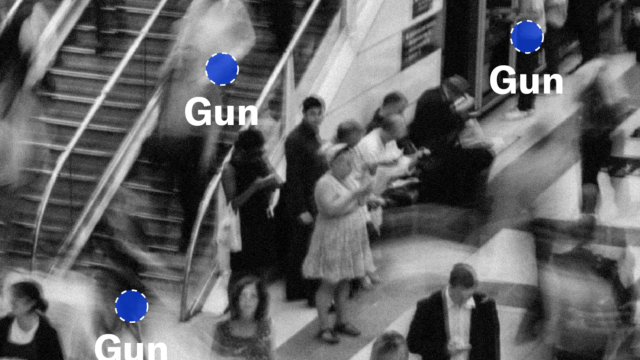
Who is Manufacturing the Guns Used in Crimes?
The same manufacturers who are engaging in risky business practices to profit the most from gun sales are also behind the most gun crimes.
Report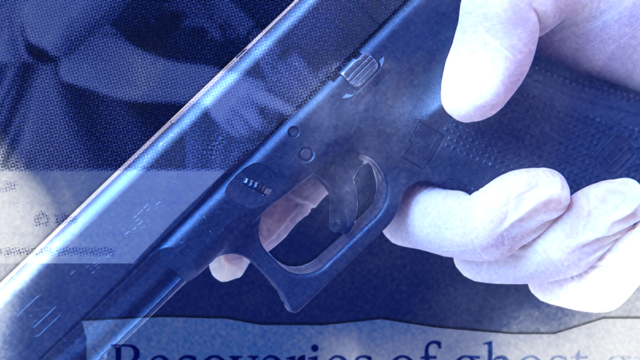
Paranoia and Profit: Armed Extremism and the Gun Industry’s Role in Fostering It
Meanwhile, the industry works with its political allies to make these weapons available to anyone, anywhere, at any time, demonizing those who want to keep…
Report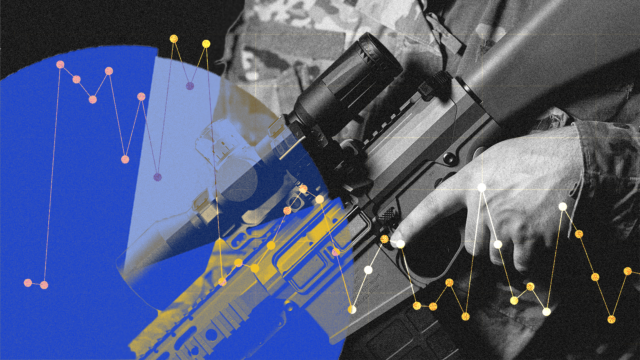
Ensuring Effective Implementation of Laws that Disarm Domestic Abusers
Many states have not fully implemented laws that disarm domestic abusers, leaving survivors at risk.
Report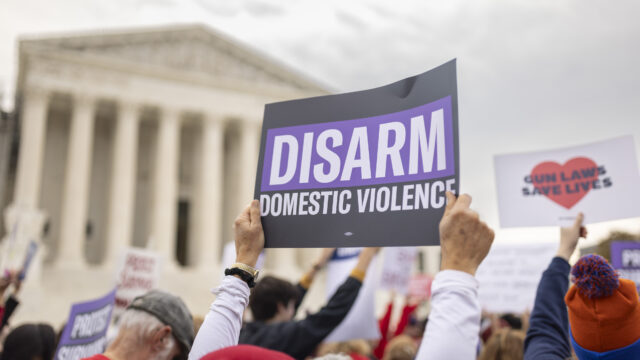
New Data, Same Conclusion: Smart Gun Laws Save Lives
Everytown's Gun Law Rankings show a clear correlation between states with strong gun laws and lower rates of gun violence.
Everytown Research & Policy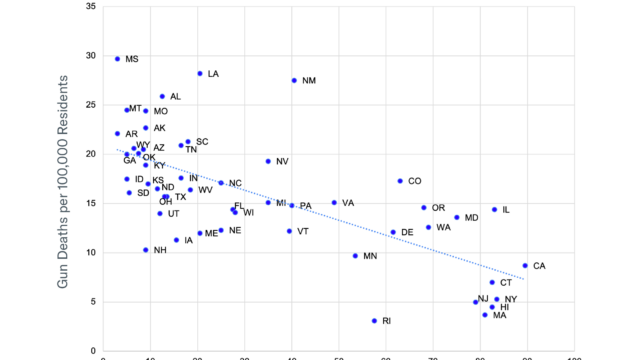
The Smoking Gun
An online resource committed to exposing the gun industry’s role in our gun violence epidemic today.
Everytown Research & PolicyArmed Extremism Primer: Oath Keepers
The Oath Keepers organize around conspiracy theories and propaganda about the reasonable regulation of firearms.
Fact Sheet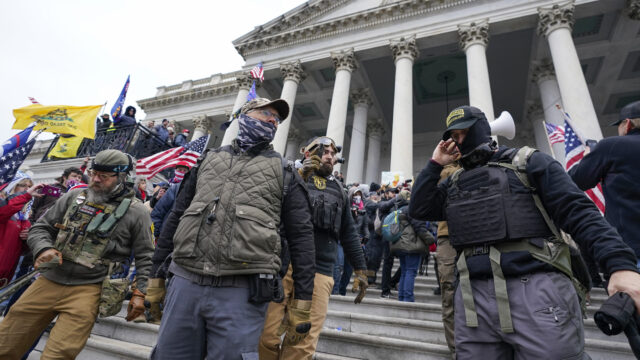
At the Forefront of Gun Safety: Removing Illegal Guns
While gun violence continues to spike across the country, illegal gun removal programs provide real hope about progress on new solutions.
Policy Paper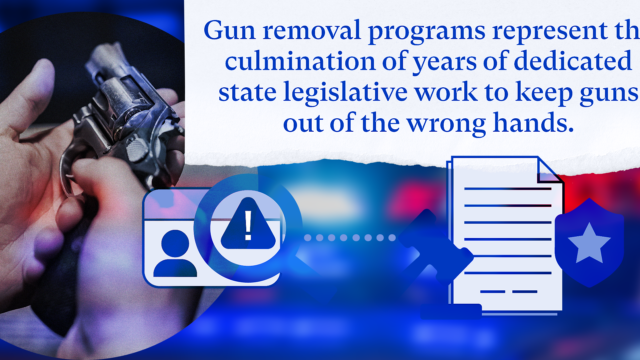
A Continuum of Gun Access Interventions for Preventing Gun Suicide
Gun access interventions exist on a continuum, a chain of actions that can be taken depending on the severity of the crisis.
Fact SheetArmed Extremism in Buffalo: Online Gun Communities Provide a Path of Radicalization and Training to a Racist Shooter
The Buffalo, NY mass shooting in May 2022 at Tops Friendly Market was an act of white supremacist, hate-motivated violence.
Report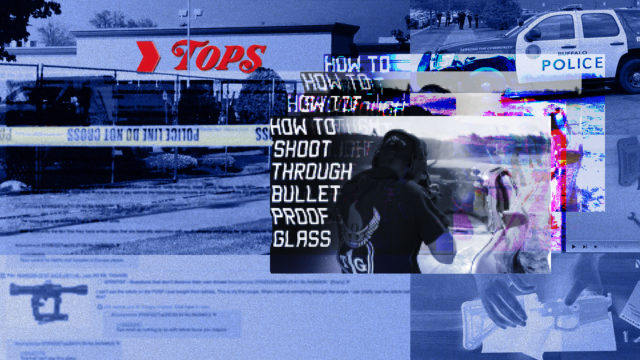
Gun Thefts from Cars: The Largest Source of Stolen Guns
Gun thefts from cars are the largest source of stolen guns—one that continues rising in parallel with rates of gun sales and violence.
Everytown Research & Policy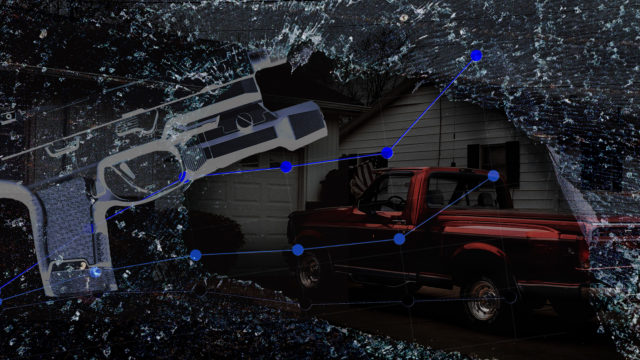
Robos de armas en vehículos: la fuente más grande de armas robadas
Una investigación de Everytown for Gun Safety Support Fund revela que los robos de armas en vehículos son la mayor fuente de armas robadas.
Everytown Research & Policy
Misogyny, Extremism, and Gun Violence
The impact of violent misogyny, combined with the unique harm of violence involving guns, makes addressing it an urgent issue.
Report
Armed Extremism Primer: Sovereign Citizens
Sovereign citizens fall under the umbrella of the wider right-wing anti-government extremist movement, which can include fixation on guns.
Fact SheetGuide to Secure Gun Storage Devices
Secure gun storage can prevent theft and access by children, unauthorized users, and anyone who may pose a danger to themself or others.
Report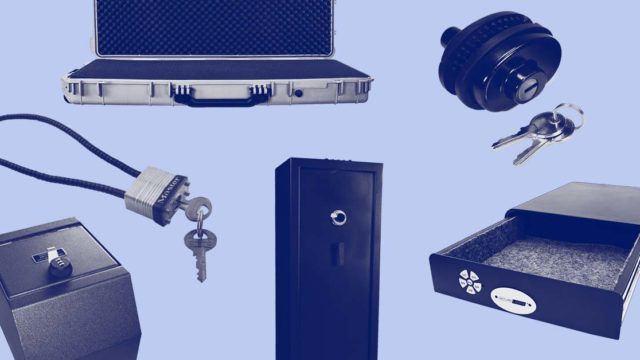
Armed Extremism Primer: The Boogaloo
The boogaloo movement has risen to national prominence as a new and dangerous subset of the extreme right in the United States.
Fact Sheet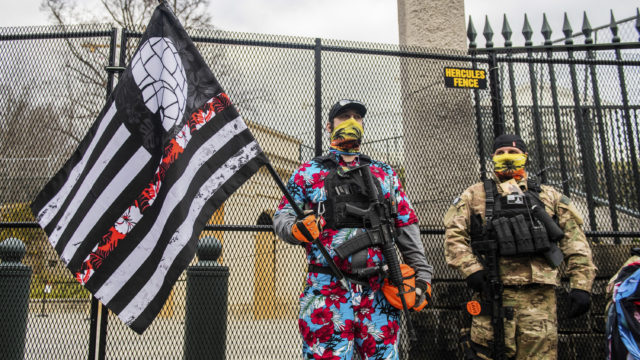
More Than Brawlers: The Proud Boys and Armed Extremism
Many far-right groups, including the Proud Boys, use fearmongering and conspiracy theories in an attempt to stop any reform of gun laws.
Fact Sheet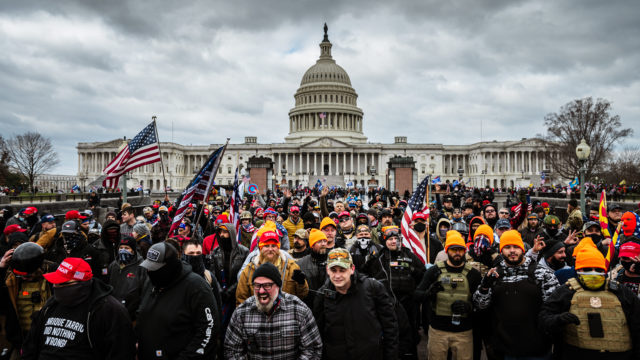
Five Things to Know About Crime Guns, Gun Trafficking, and Background Checks
The current patchwork of state laws makes it easy for individuals to traffic firearms from states with weaker gun laws.
Report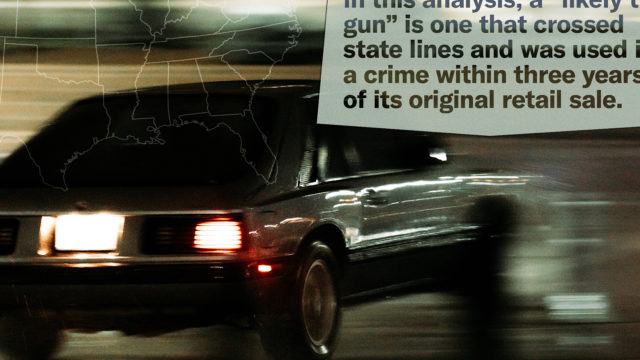
The Danger of No-Questions-Asked Gun Sales Between Strangers
These stories are examples of tragedies that could have been prevented if a background check was required when the shooter bought their gun.
Fact SheetUnchecked: An Investigation of the Online Firearm Marketplace
The online firearm marketplace has emerged as a growing market for anonymous gun purchases through websites such as Armslist.
Data Tracker
The Role of Guns & Armed Extremism in the Attack on the U.S. Capitol
The attack on the U.S. Capitol is the latest demonstration of the danger armed extremism poses to our democracy.
Report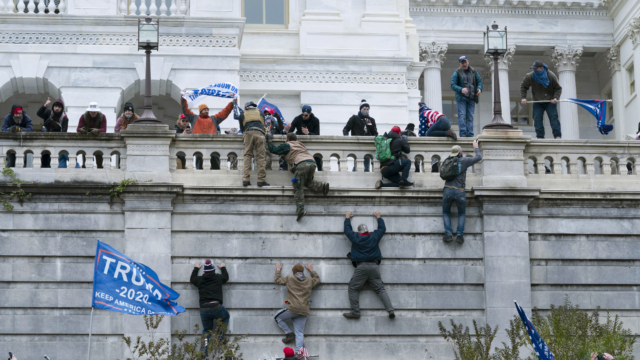
Armed and Dangerous: How the Gun Lobby Enshrines Guns as Tools of the Extreme Right
For decades, the gun lobby has enabled extremists to access guns through its opposition of common sense gun laws.
Report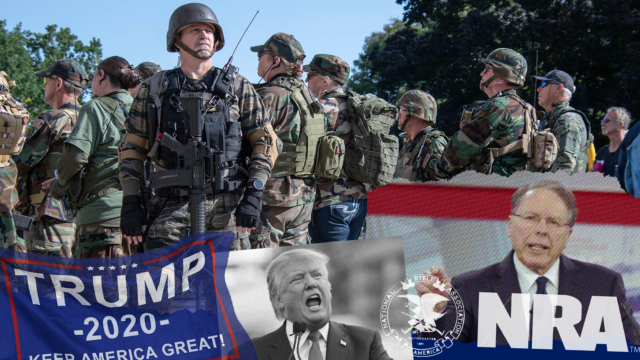
How COVID-19 Has Made a Federal Background Check Loophole Even Deadlier
More background checks were run in March 2020 than at any other time since the creation of the background check system.
Fact Sheet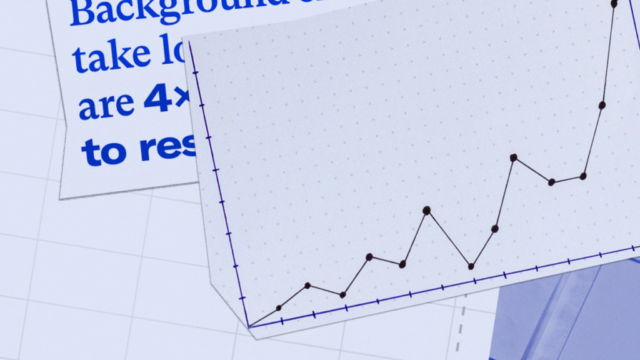
Domestic Violence and Firearm Surrender in Rhode Island
Since the law was enacted, there has been a seven-fold increase in the number of domestic abusers who were ordered to surrender their guns.
Report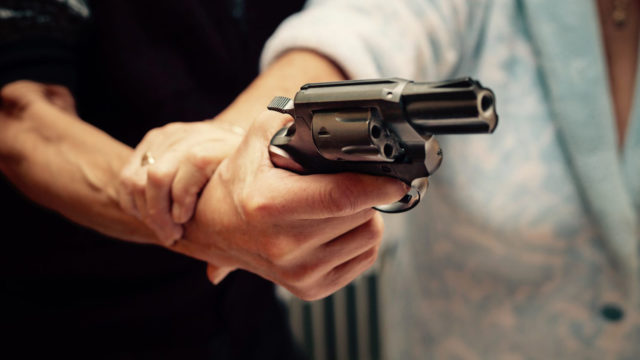
Unload, Lock, and Separate: Secure Gun Storage Practices to Reduce Violence
Secure gun storage practices should include unloading the ammunition, locking the gun, and storing it and ammunition in separate locations.
Fact Sheet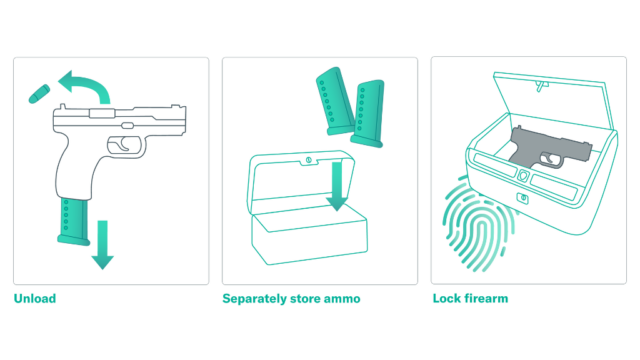
Disarm Hate: the Deadly Intersection of Guns and Hate-Motivated Violence
Easy access to firearms gives a hate-filled individual the means to shatter numerous lives and whole communities.
Fact SheetStolen Guns Pose a Tremendous Risk to Public Safety
Thousands of guns are stolen every year and often wind up at crime scenes. Stolen guns pose a tremendous risk to public safety.
Fact Sheet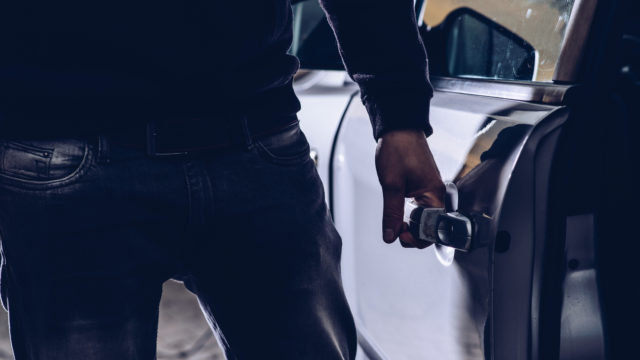
Fatal Gaps
More than ten years after the Virginia Tech shooting, progress in closing the gaps in state mental health records submissions is evident in several…
ReportThe SHARE Act Is Dangerous and Unnecessary
Bottom Line: Silencers pose a significant danger in the wrong hands, making it harder for bystanders or law enforcement to identify and react quickly to…
Fact SheetDanger in the Land of Enchantment
In October 2016, a violent felon from Deming tried to buy a gun. He had recently served time in prison for three felonies related to…
Report
